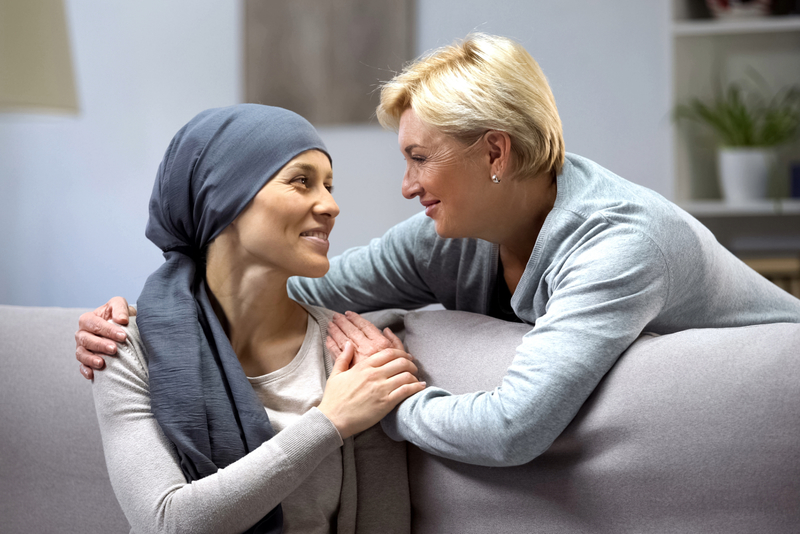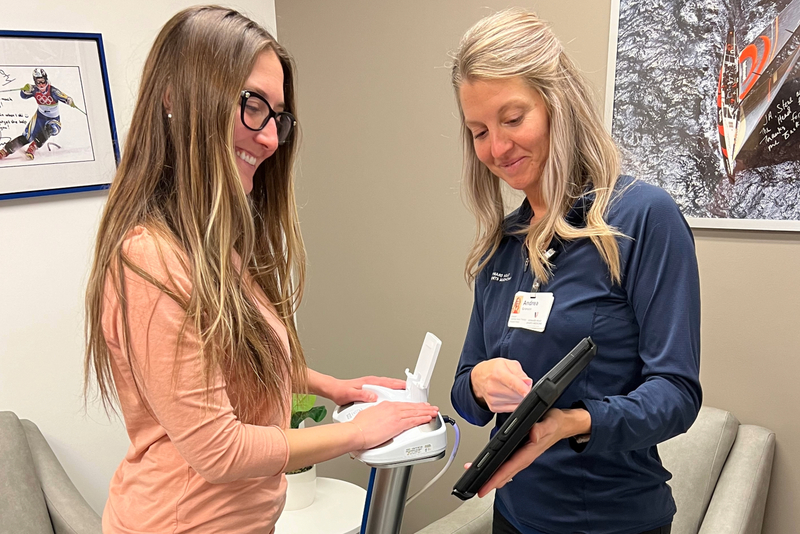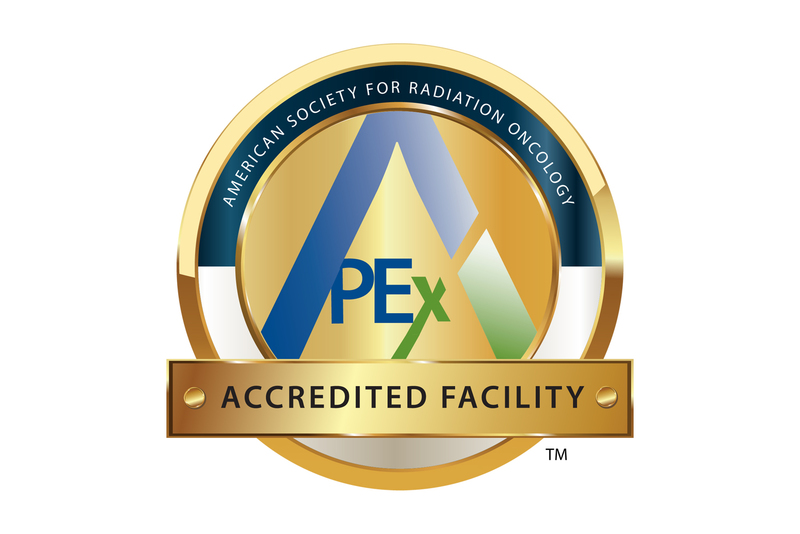News
Understanding Genetic Counseling
Emily Tamberino
April 01, 2024

Genetic counselors are healthcare professionals specially trained in providing education and psychosocial support and care. They can work in a variety of settings and specialties, including hereditary cancer counseling or prenatal genetic counseling, for instance. Whereas a direct-to-consumer genetic test could actually generate more questions than answers, genetic counseling provides a comprehensive and personalized approach to each person’s unique health profile and family history.
What is hereditary cancer genetic counseling and testing?
Most cancers occur by chance, which is why routine cancer screenings are so important in the early detection of disease. However, about 10% of cancers have an underlying genetic cause, meaning there is an inherited risk to develop cancer that is passed from one generation to the next.
Peyton Nunley, MS, CGC is a certified genetic counselor at Shaw Cancer Center. She meets with patients who have cancer or a family history of cancer and collaborates with a multidisciplinary cancer care team that includes an oncologist, radiologist, surgeon and others to review each patient’s history and help determine if there is a risk for a genetic component to the cancer. Peyton helps patients decide if genetic testing is right for them and provides resources, screening recommendations and psychosocial support.
“In a typical genetic counseling appointment, I will offer education on any genetic conditions of concern, the genetic testing process and potential implications of results,” explains Peyton. “A risk assessment is conducted, and I can help patients determine if they want to undergo genetic testing or not.”
Not everyone who has a genetic counseling appointment will pursue genetic testing. In some cases, Peyton may be able to provide reassurance that a patient does not need testing. In that case, she might recommend screenings or testing for other people in the family if they are a better fit for it. If patients elect to undergo testing, Peyton can facilitate the order with a genetic testing lab. When the results are available, she reviews them and provides a summary to the patient and his/her primary care provider. She can also help connect the patient with support groups specific to a condition of concern.
Genetic testing for hereditary cancer is typically done on a blood or saliva sample. The genetic testing lab analyzes genes to determine if a person was born with a harmful change, or what is called a pathogenic variant. “Detection of a pathogenic variant doesn’t equate to a cancer diagnosis, nor does it determine if someone is destined to develop cancer,” explains Peyton. “This type of result indicates that the person has a higher risk than average to develop certain cancers in their lifetime. Similarly, a negative genetic test does not rule out the chance of developing cancer either. Even with a negative genetic test, regular cancer screenings are still recommended, and some people may qualify for increased screenings as well.”
In addition to genetic testing, there are additional types of “genomic” tests that can be conducted on a tumor. Also referred to as “somatic testing,” “tumor testing” or “tumor profiling,” this type of testing is often ordered by an oncologist to help determine the best treatment for a cancer diagnosis. In some cases, somatic testing may identify a genetic change that has been inherited. Peyton helps order testing to confirm if these changes seen on a tumor test are inherited.
I already had a genetic test, should I see a genetic counselor?
If someone has already had genetic testing, it can still be very helpful to consult with a genetic counselor to review the results. A genetic counselor can determine if any additional testing is needed. If a patient has a “positive result,” the genetic counselor can provide education, resources related to the condition and support for the patient as emotions arise. The counselor can also help identify other relatives who may need testing.
If patients receive a negative result, a genetic counselor can help determine if they qualify for any additional care based on their personal and family history despite the negative genetic test result. Colon cancer is a common example of this. “If a patient has a family history of colon cancer and receives a negative genetic test for hereditary causes of colon cancer, that patient is still at increased risk to develop colon cancer,” says Peyton. “The patient would be recommended to start colon cancer screening earlier and undergo testing more often.” Peyton knows these guidelines and can help inform patients and their provider(s) of these recommendations. She can also help identify other relatives who may need genetic testing.
What if I had a direct-to-consumer genetic test?
Direct-to-consumer genetic testing is a booming industry. While some direct-to-consumer tests might satisfy curiosities, it is important to remember that most are not clinical-grade genetic tests, meaning they are not meant to diagnose or rule in/out genetic conditions. Some of these tests may offer “limited” analysis for some genetic conditions. One example is the BRCA1 and BRCA2 genes. These genes are related to hereditary causes of breast, ovarian, prostate and pancreatic cancers. Direct-to-consumer testing may look for a couple of common variants in these genes, but they do not assess for every possible change that can occur. Additionally, there are other genes related to hereditary causes of breast, ovarian, prostate and pancreatic cancers that are not assessed on the direct-to-consumer tests.
“If someone has had a direct-to-consumer test, they may still need a clinical grade test,” explains Peyton. “A genetic counselor has the time and expertise to help sort through this information with a patient.”
The world of genetics is rapidly changing and genetic information is becoming integrated into everyday healthcare. With so many testing options and the significant impact the results can have on individuals and their family, seeking expertise is critical. Genetic counselors can provide a wealth of information and support through an otherwise challenging and confusing experience.
If you are interested in learning more about oncology genetic counseling, visit ShawCancerCenter.org/GeneticCounseling, call (970) 569-7669 or email CancerGenetics@VailHealth.org.
More News
-
More

Cervical Cancer, Lymphedema and SOZO What You Should Know
January is Cervical Cancer Awareness Month. Cervical cancer is the fourth most common cancer in women globally with...
-
More

Vail Health Shaw Cancer Center achieves accreditation for radiation oncology services from ASTRO's APEx - Accreditation Program for Excellence®
Vail, CO (Sept. 7, 2023) — Vail Health Shaw Cancer Center successfully attained accreditation...
-
More

How Exercise Snacking Helps Boost Health
Staying physically active following a cancer diagnosis can be daunting. But a great way to slowly introduce exercise...
